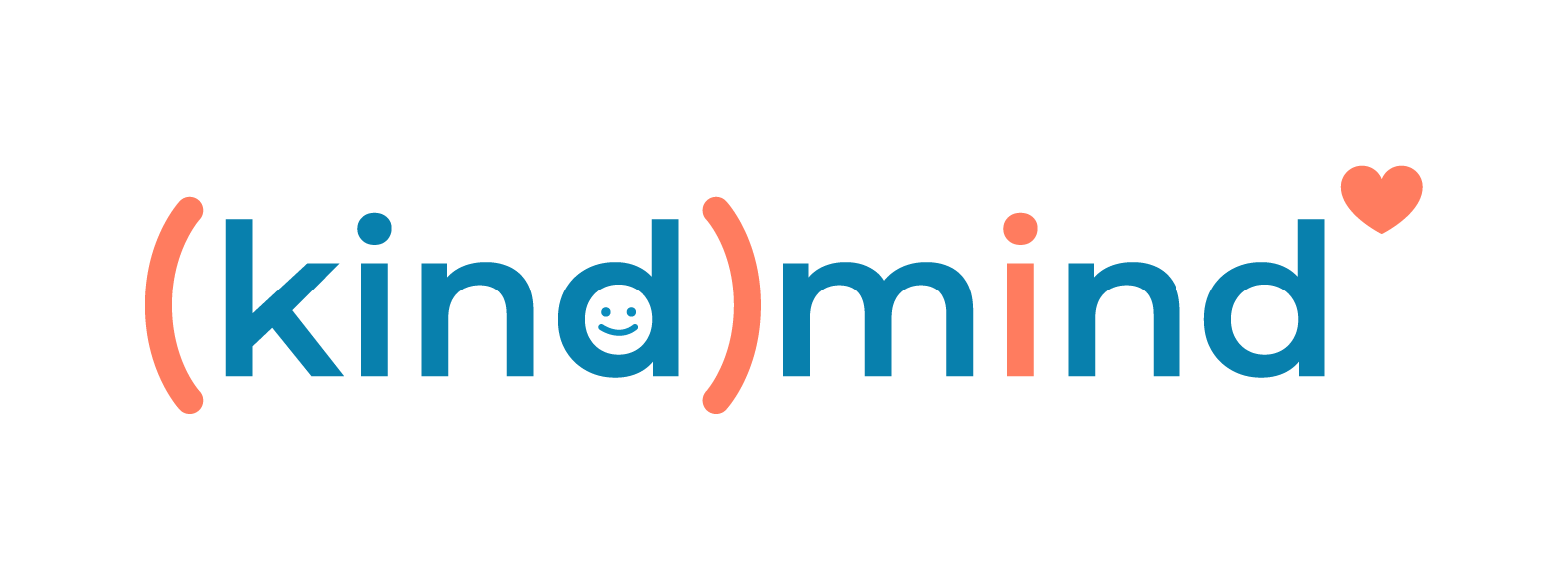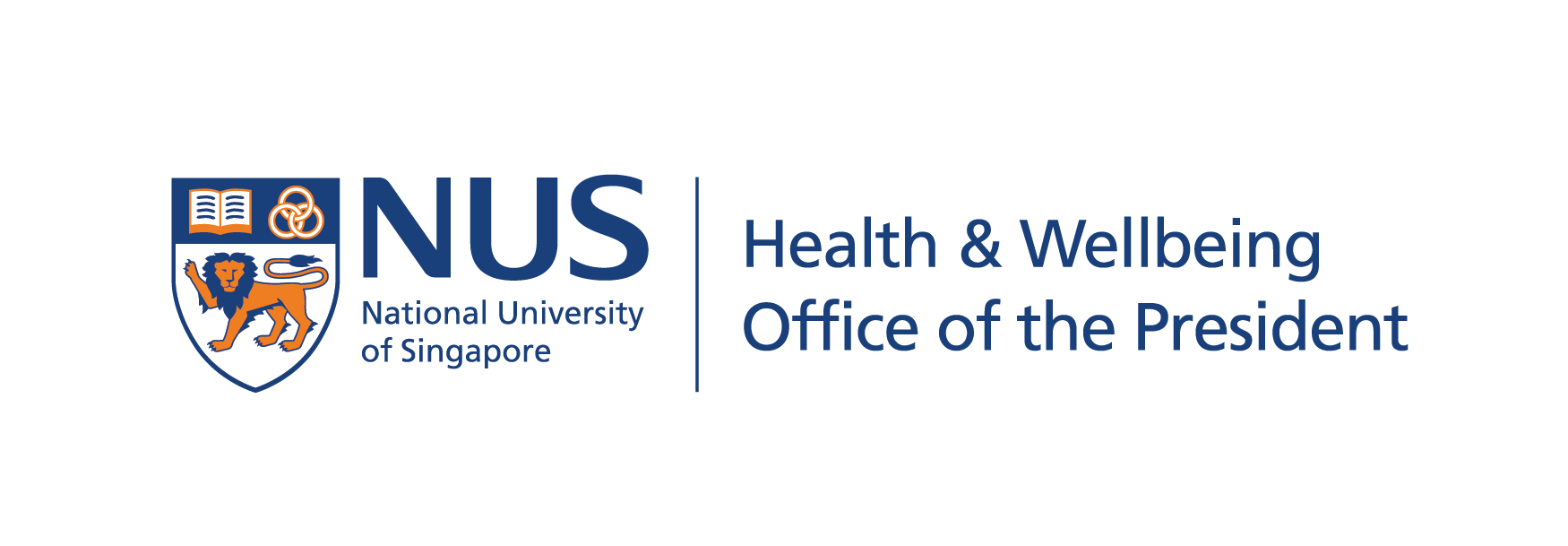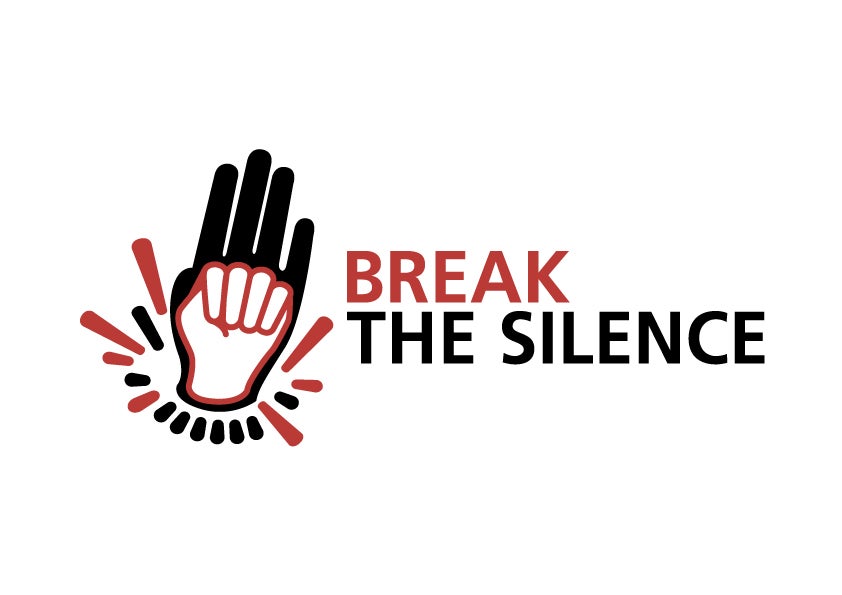Wear jeans with a purpose
wear denim on 30 apr
On 30 April 2025, join many others across the world in showing support for victim-survivors of sexual misconduct by wearing denim, jeans or a Denim Day pin distributed by the NUS Care Unit (NCU).
You can raise awareness around sexual misconduct on your social media with NCU’s #DenimDayNUS campaign. From now until Denim Day (Wed, 30 Apr), post a photo of you and your denim or our pin on your social media and tag @nuscareunit using the hashtags #DenimDayNUS #DenimDay2025.
Whether you are an NUS student or a staff, we all have a role in promoting a safer, more respectful, and more vibrant community life.
__PRESENT__PRESENT__PRESENT
Thank you for wearing jeans with a purpose, and for standing by survivors of sexual misconduct.
In total, over 900 members of the OneNUS community have pledged to be a responsible, caring, and active supporter of survivors of sexual misconduct. We are truly heartened by the positive support and response from students, staff and faculty members.
Thank you once again, and we look forward to seeing you in your jeans, denim and/or #DenimDayNUS badge again on NUS Denim Day 2024.
#DenimDayNUS
why denim?
Denim Day is an international campaign in April developed by Peace Over Violence and also falls during the Sexual Assault Awareness Month (SAAM). Denim Day originated from an unjust court ruling made in Italy in the 1990s which acquitted the perpetrator on the basis that sexual assault was not deemed possible if the survivor was wearing jeans. Since then, wearing jeans has become an international symbol of solidarity to end all forms of gender prejudice and sexual misbehaviours.
Denim Day has been organized in many countries across the world including across the U.S. from Los Angeles to New York, in North and South America, Europe, Africa and Australia. The NUS Care Unit organized NUS’s first Denim Day in April 2021.
Denim Day is typically observed on every last Wednesday in April. This year, Denim Day will be observed on 30 April 2025.
__PRESENT__PRESENT__PRESENT
lend a hand,
take a stand
stamp your support
This year’s tagline, “Lend a Hand, Take a Stand”, embraces the symbol of handprints in its messaging.
Handprint pledging has been a staple of many sexual assault awareness events across the world. In the context of sexual assault awareness, the activity symbolizes the participant’s pledge to not commit or condone sexual violence.
As part of our annual Denim Day roadshow at UTown on 15 & 16 Apr, NCU invites NUS students and staff to take this pledge with us and demonstrate your support by placing your handprint on our banners.
__PRESENT__PRESENT__PRESENT
how you can get involved?

Come join us for at UTown Plaza (in front of Fine Food) on 15 & 16 April between 11 AM to 130 PM for our annual Denim Day roadshow.
Learn more about your support options on-campus, the different ways you can intervene as a bystander, and healthy relationships.
This year, we will be joined by NUS Health & Wellbeing (HWB), NUS Peer Student Supporters (PSS) and the Ministry of Social & Family Development's (MSF) "Break the Silence" Campaign.
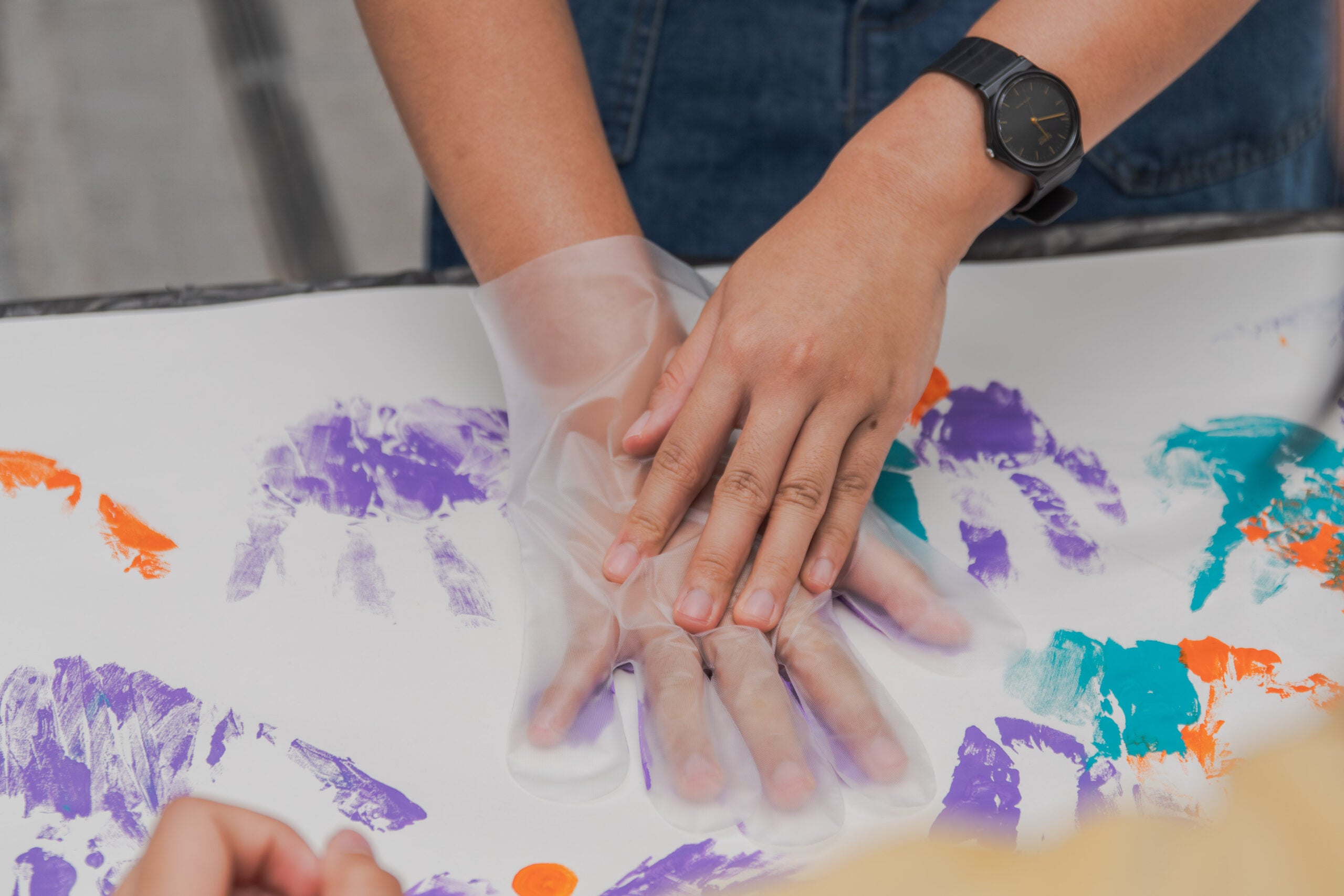
Leave your handprint on our banner and pen messages of support at our roadshow! Let's show our support for victim-survivors.

On 30 Apr*, integrate either jeans, denim or our exclusive enamel pin as part of your fit! Being fashionable and supportive are not mutually exclusive 🙂
*Denim Day is internationally observed on every last Wednesday of April. This year, Denim Day is observed on 30 April 2025. We would also encourage you to wear denim or jeans if you’re dropping by our roadshow on 15 & 16 April!
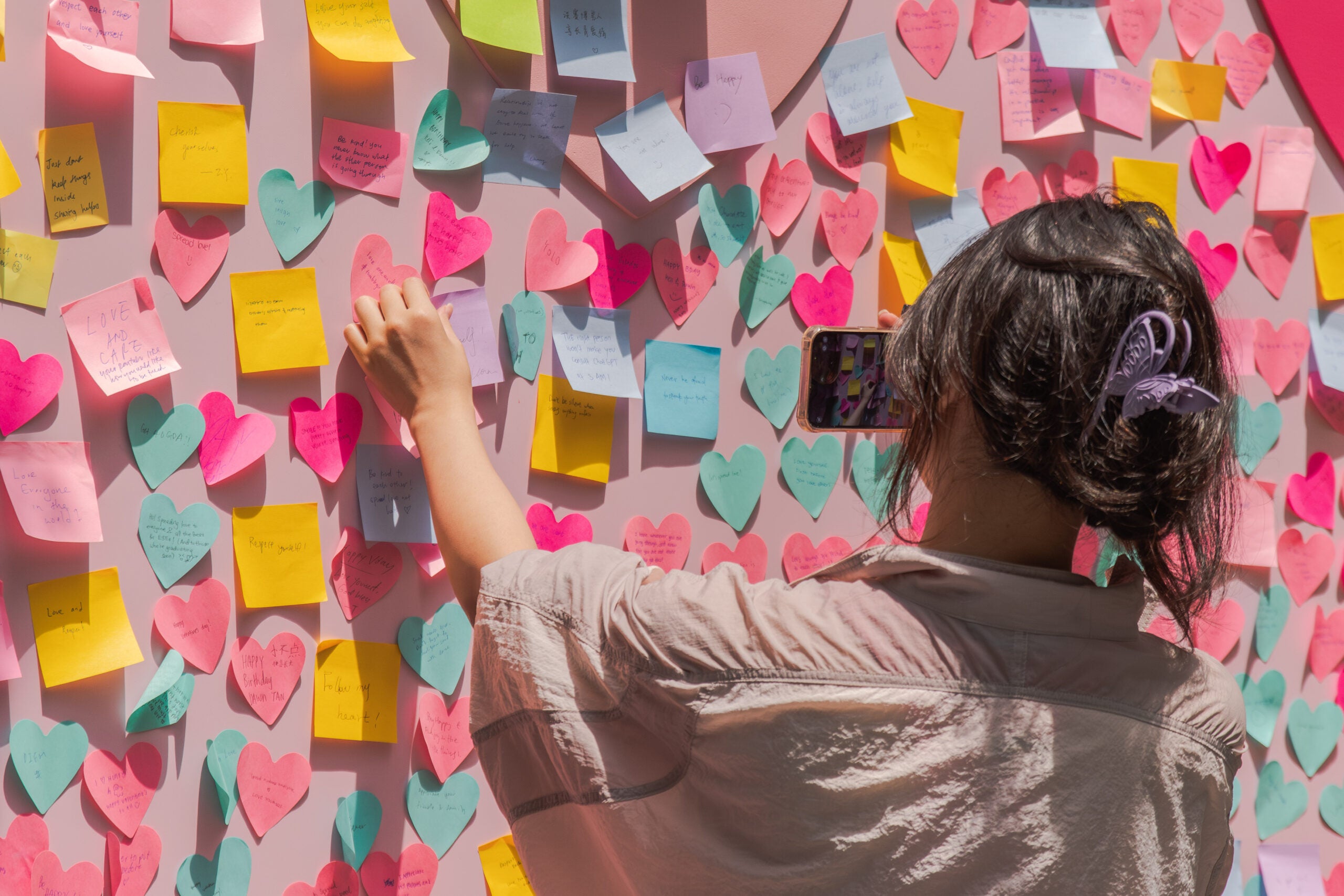
Post your Denim Day fit and at the same time, use your socials to share what you learned at our roadshow and raise awareness on sexual misconduct.
Do also tag us @nuscareunit and use the hashtags #NUSDenimDay #DenimDay2025
can’t show your support at our roadshow? Visit our other pop-up and pledge online instead!
__PRESENT__PRESENT__PRESENT
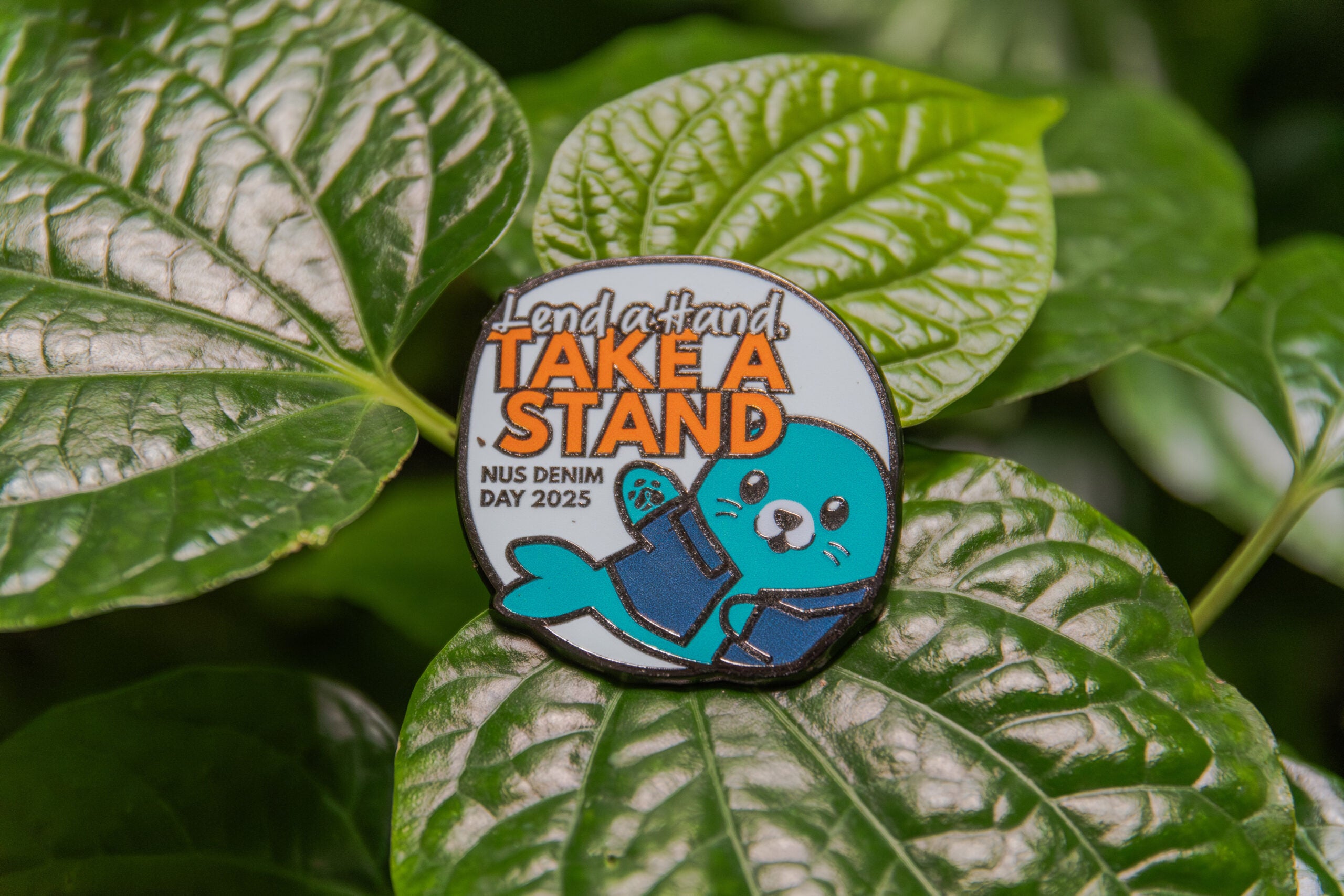
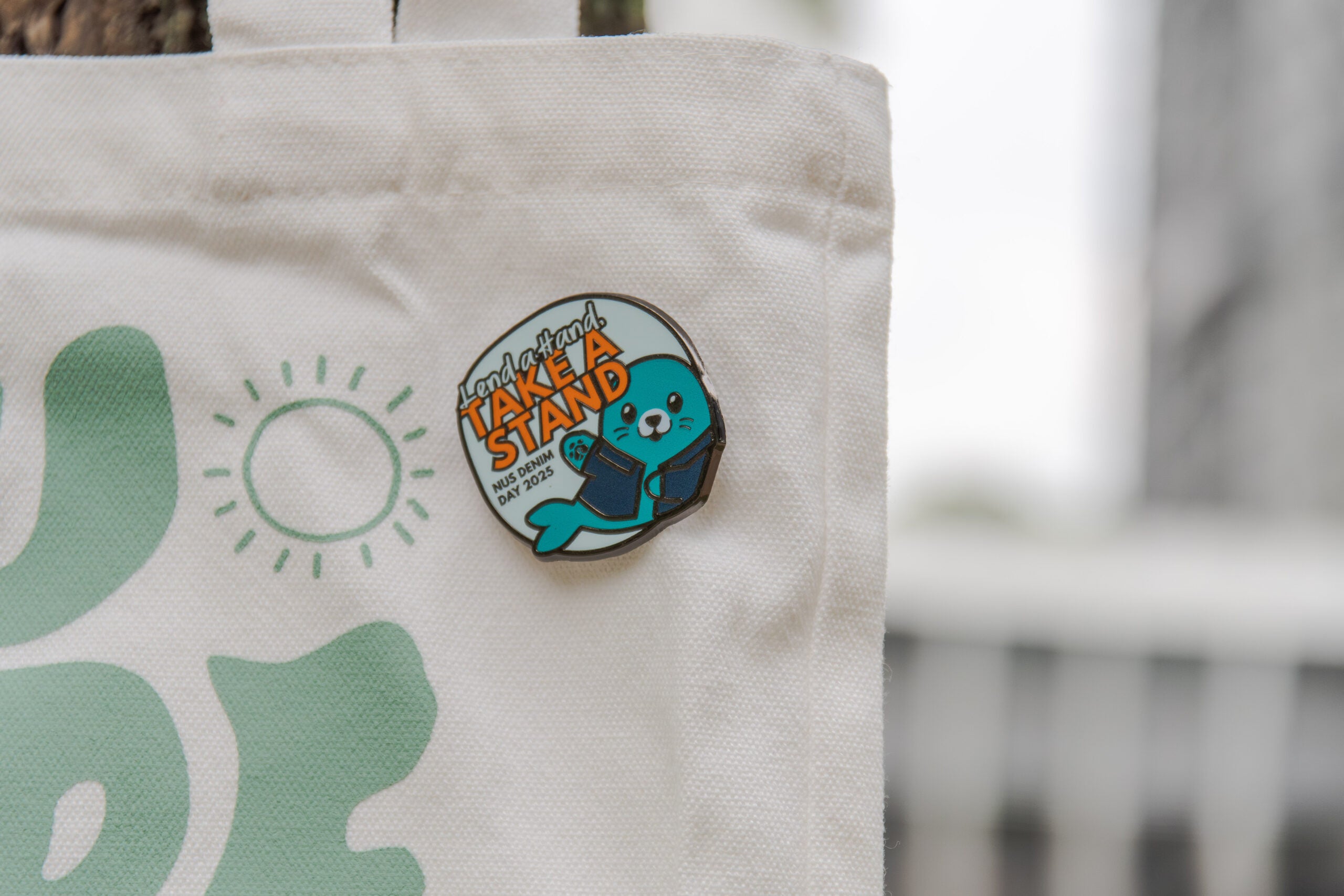
pin your message of support
No jeans or denim, or feel that it’s too hot to wear jeans? You can still show your support by wearing our exclusive enamel pin.
The pin features this year’s tagline as well as our mascot, Teal the Seal!
To redeem a pin, come by our booth during the roadshow on 15 & 16 Apr.
__PRESENT__PRESENT__PRESENT
where you can find us
Can’t come by on 15 & 16 Apr? You can still drop by our unstaffed booth in NUS. Here’s where.
__PRESENT__PRESENT__PRESENT
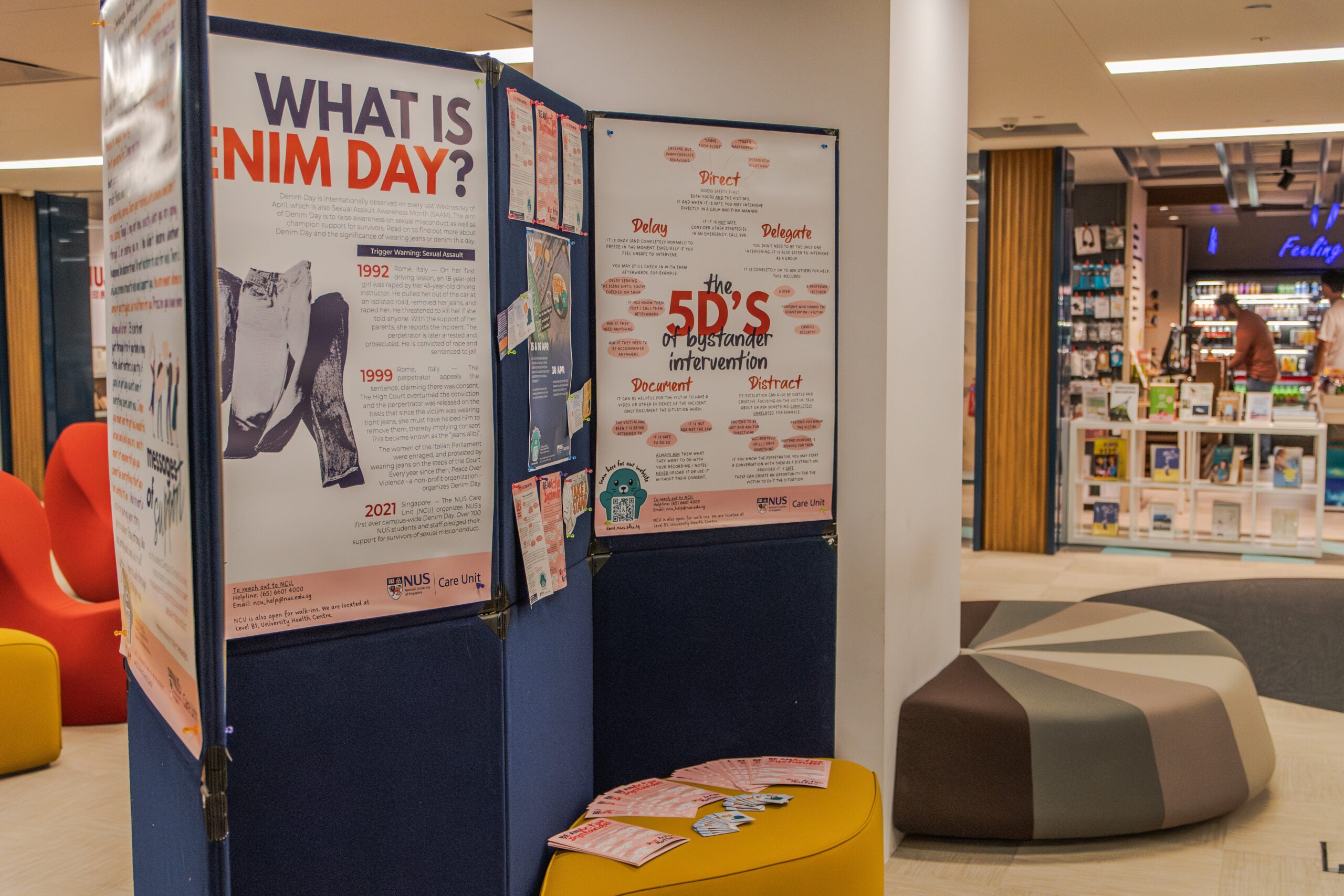
26 Mar - 2 May
Level 1 (in front of Co-Op), Central Library
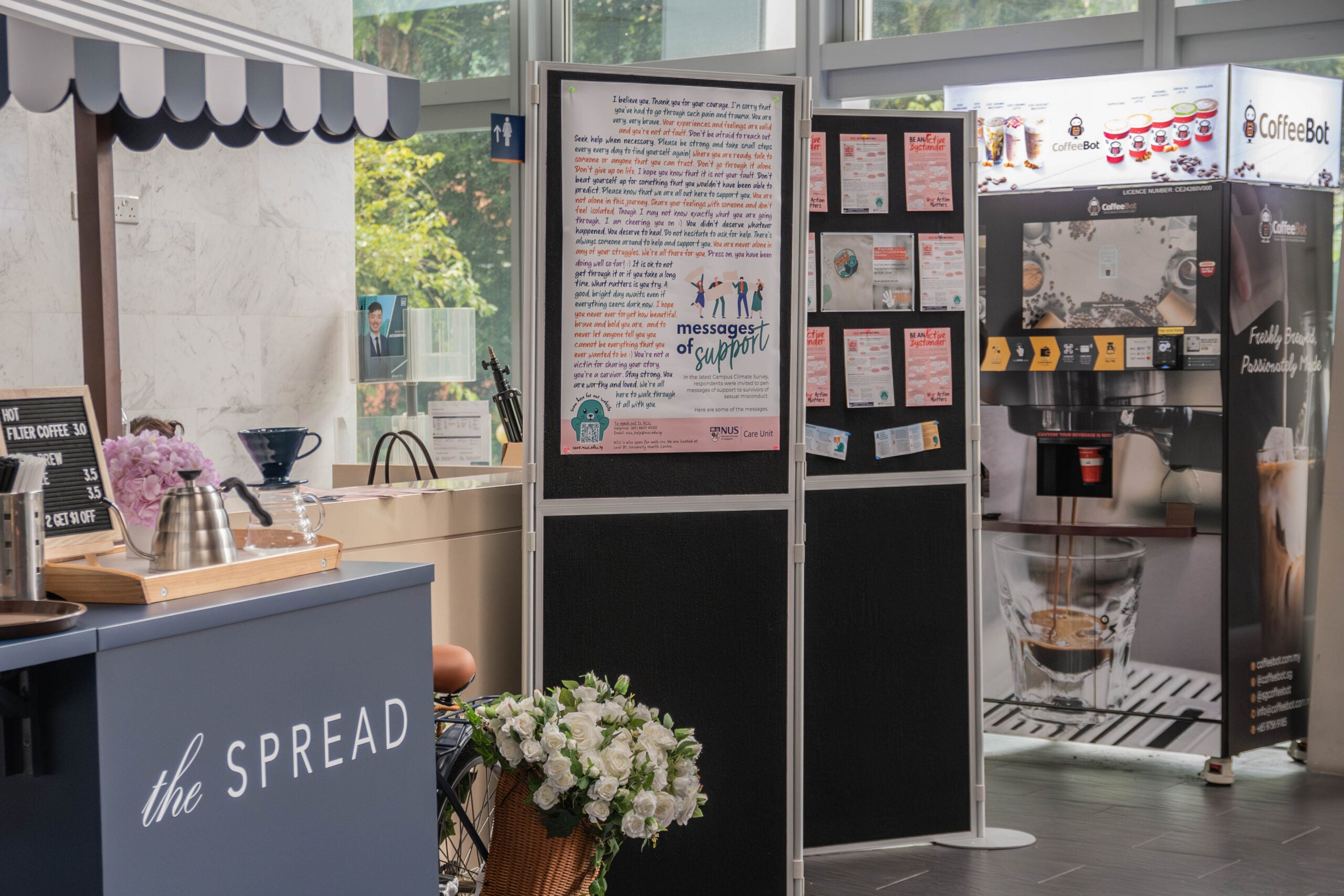
4 - 30 Apr
Level 1, Mochtar Riady Building (MRB), NUS Business School
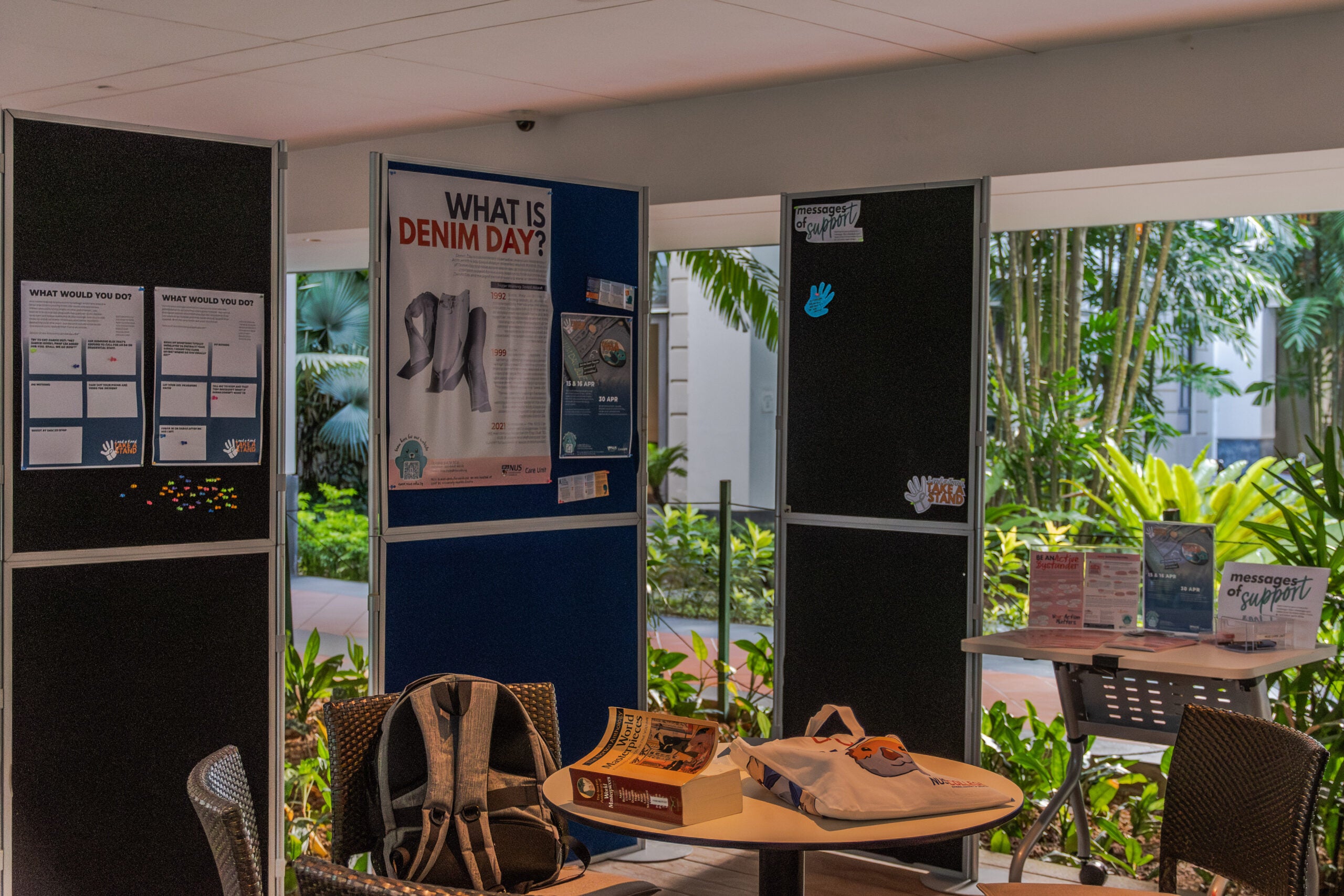
7 - 11 Apr
Level 1, Elm College, NUS College (NUSC)
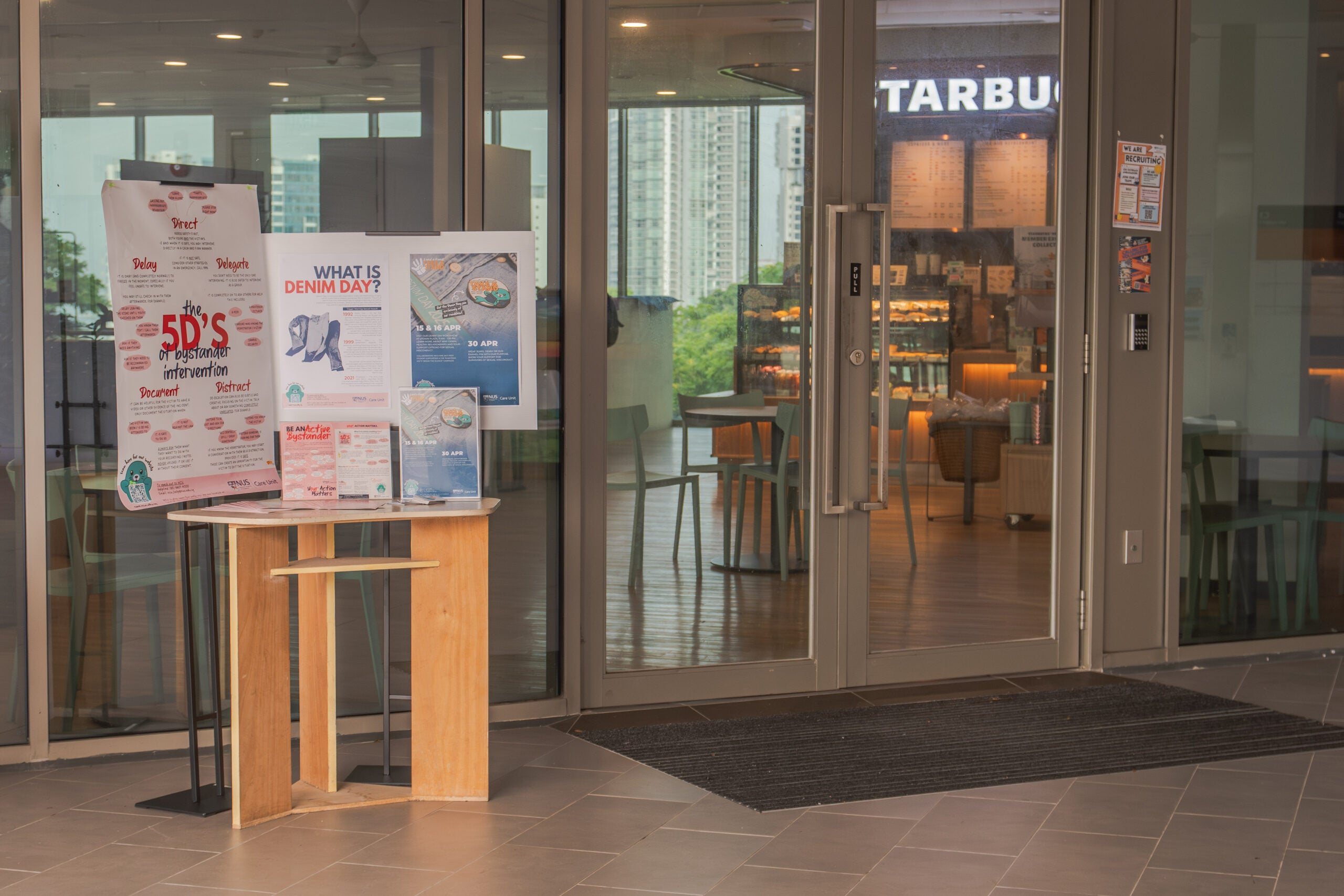
10 - 21 Apr
Level 3A, TechnoEdge, College of Design & Environment (CDE)
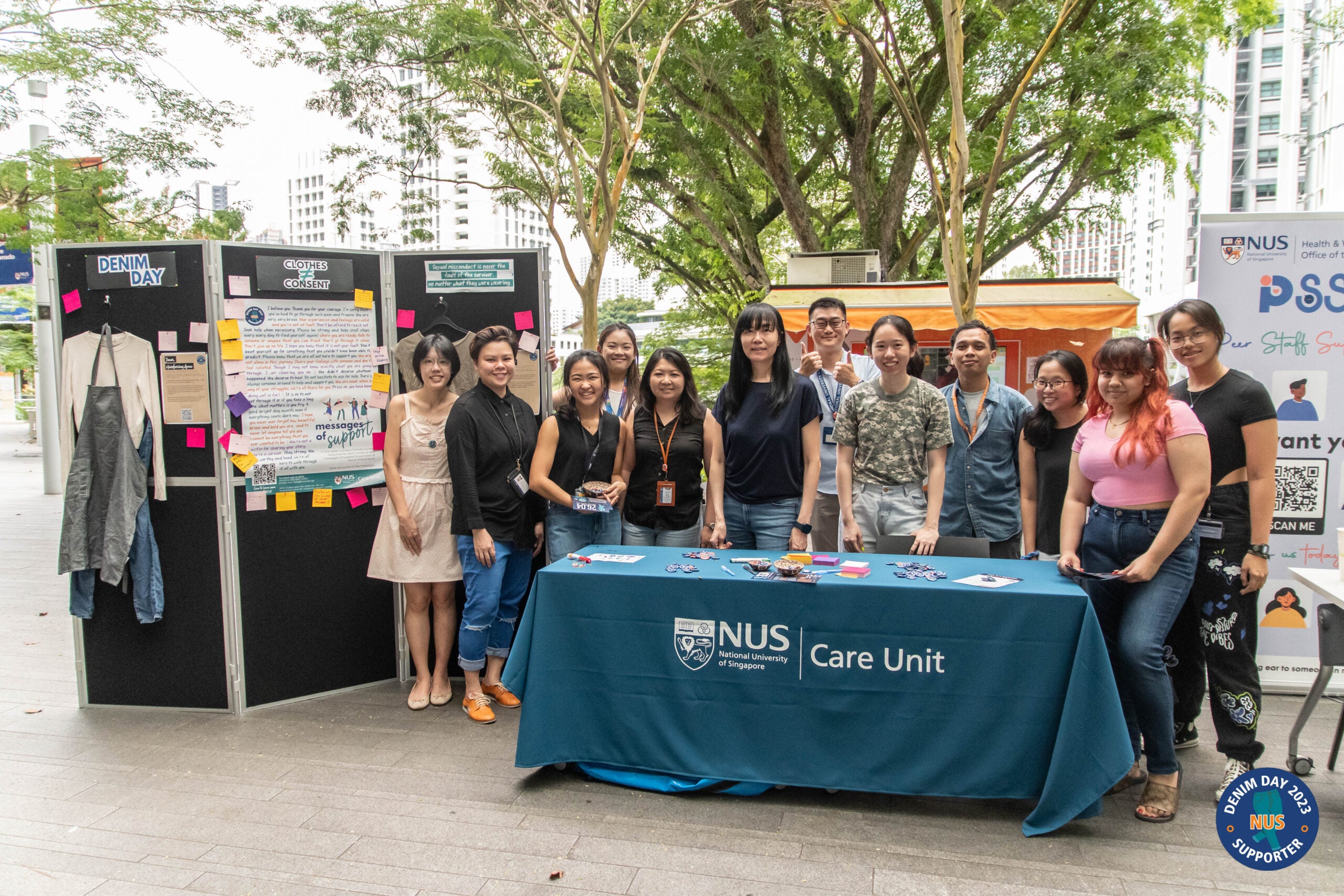
15 & 16 Apr, 11 AM - 130 PM
UTown Plaza (in front of Fine Food)
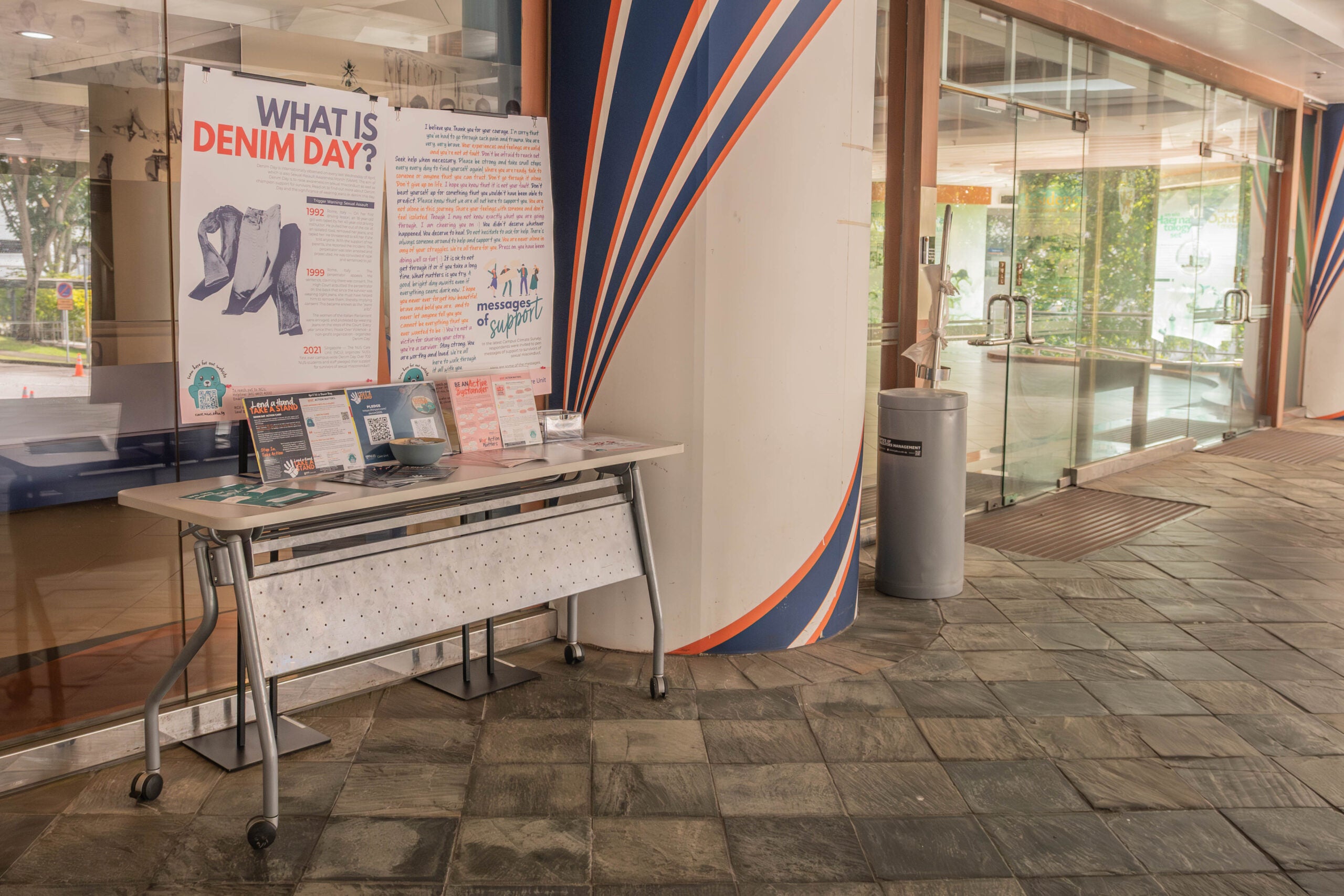
21 Apr - 6 May
Foyer, MD11, Yong Loo Lin School of Medicine
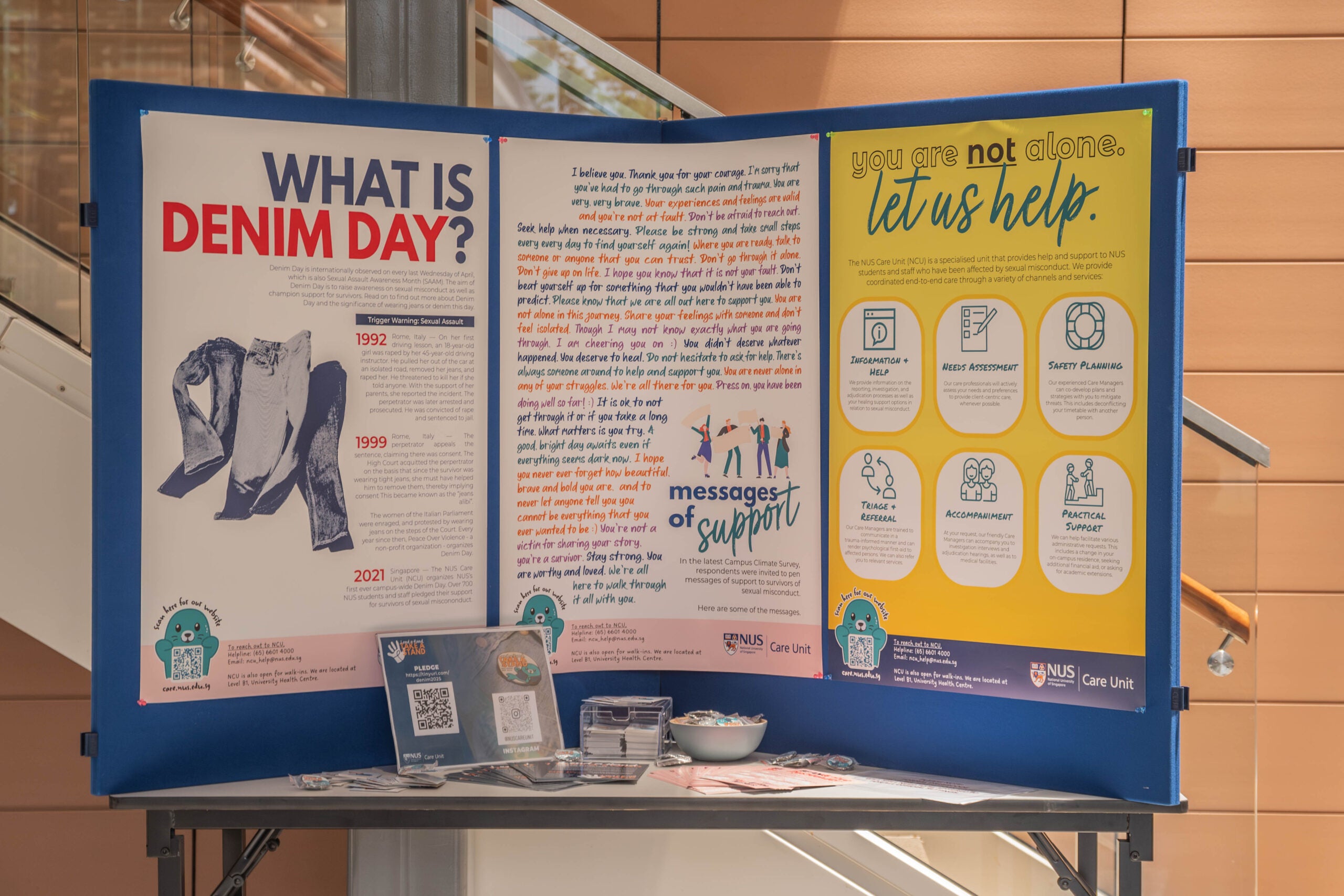
22 - 29 Apr
Level 2, Duke-NUS

7 - 11 Apr
Level 1, Elm College, NUS College (NUSC)

10 - 21 Apr
Level 3A, TechnoEdge, College of Design & Environment (CDE)

15 & 16 Apr, 11 AM - 130 PM
UTown Plaza (in front of Fine Food)

21 Apr - 6 May
Foyer, MD1, Yong Loo Lin School of Medicine

22 - 29 Apr
Level 2, Duke-NUS
pledge your support
__PRESENT__PRESENT__PRESENT
I pledge to be,
A responsible and caring member of the NUS community who supports survivors of sexual misconduct.
To help end sexual misconduct, I will:
To help a survivor, I will:
On Wednesday, 30 April 2025 I will wear jeans, denim or a Denim Day pin as a visible demonstration of support for vicitm-survivors of sexual misconduct and for building a culture of respect on campus.
__PRESENT
__PRESENT
__PRESENT__PRESENT__PRESENT
__PRESENT__PRESENT__PRESENT
collaborators
__PRESENT__PRESENT__PRESENT
We would like to thank the following collaborators for their participation in Denim Day 2025:
__PRESENT__PRESENT__PRESENT
